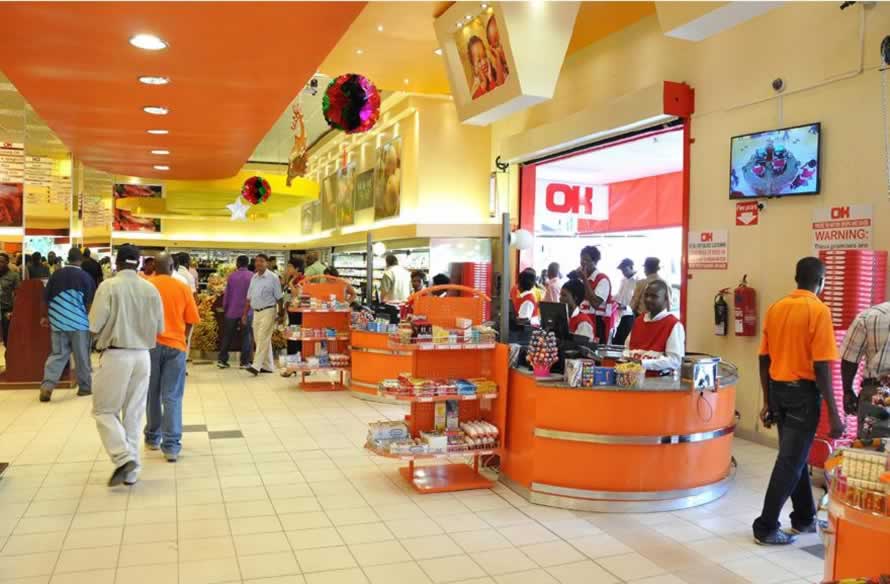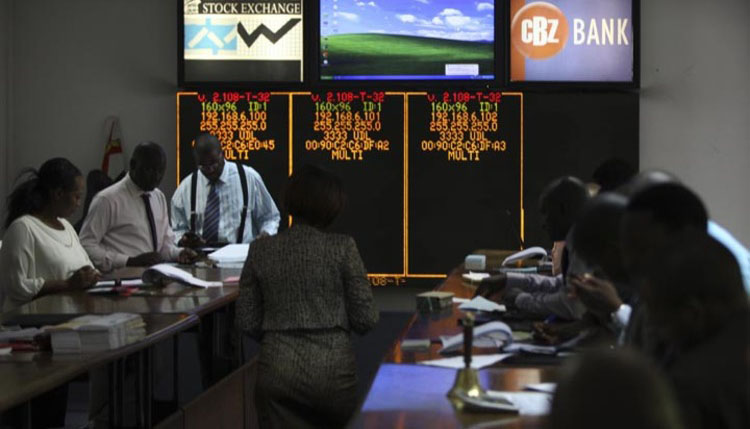
The Sunday Mail

 ZIMBABWE Stock Exchange (ZSE)-listed retail giant OK Zimbabwe has handled over R22 million through its mobile money transfer service, FNB Zimbabwe Money Transfer, since the launch of its facility targeting Zimbabweans working in South Africa.
ZIMBABWE Stock Exchange (ZSE)-listed retail giant OK Zimbabwe has handled over R22 million through its mobile money transfer service, FNB Zimbabwe Money Transfer, since the launch of its facility targeting Zimbabweans working in South Africa.
Last year, OK Zimbabwe entered into an agreement with South Africa’s First National Bank (FNB) to facilitate the safe and formal transfer of money from South Africa. The retailer’s chief executive officer Mr Willard Zireva claims that the facility is a strategic growth area that enables the group to tap into Zimbabweans living in South Africa.
“Zimbabweans in South Africa account for much of the income for most families in Zimbabwe, particularly in the Southern region and therefore this is a strategic growth area for OK. Through this service, OK Zimbabwe will tap into an estimated US$800 million remitted by Zimbabweans from South Africa every year. Over ZAR22 million has been remitted since inception.
“The service is also expected to simplify the way Zimbabweans send groceries to families and friends back home as they have previously had to depend on informal and often unreliable methods to send their groceries and money home.”
A research by the FNB last year indicated that about two million Zimbabweans in South Africa remit an estimated R6,7 billion ($620 million) a year, but a fifth of it is spent on transfer costs.
The two million figure is however disputed as the South African 2011 Census Report noted that non-South African citizens made up only 1,7 million of the country’s 51,7 million people.
In a 2010 study, the United Nations Development Programme went further to say of the estimated three million Zimbabweans in the Diaspora, only seven percent did not have dependants at home, while 72 percent had three or more dependants.
According to a 2011 FinScope Consumer survey, remittances made via family and friends account for 58 percent of all transfers, while 17,5 percent use other informal channels and the remainder uses formal means.
The UNDP estimates that there are 400 000 Zimbabweans living in the United Kingdom, 200 000 in Botswana and 200 000 across Africa.
The United States and Canada have about 50 000, with Australia and New Zealand accounting for 20 000 and 50 000 respectively, all of whom send money to Zimbabwe through various channels.
Various other private players are currently seeking to tap into the Diaspora remittances.
Econet in mobile money coup
Last week, Econet Wireless Zimbabwe (EWZ) formed a tie-up with international money transfer concern WorldRemit to launch mobile money transfer service,EcoCash Diaspora.
Migrants and expatriates from 35 countries can make online payments to families and friends in over 100 destinations through WorldRemit.
Also, through the WorldRemit platform, customers can send money to Zimbabwe online through smartphones, tablets and computers directly to an EcoCash subscriber.
It is believed that EWZ seeks to leverage on WorldRemits affordable rates of about five percent of the transaction fee in order to lure customers, most of whom have been mainly reliant on Western Union and MoneyGram.
At approximately 70 percent of the transaction fee, charges from the two transfer agencies have for long been considered as extortionate.
WorldRemit launched its online money transfer service to Zimbabwe in December 2010.
It is understood that on average, a transfer of $200 to sub-Saharan Africa loses $25, or 12 percent of the total transaction when sent through MoneyGram or Western Union.
WorldRemit chief executive Dr Ismail Ahmed, an African himself and former adviser to the United Nations, has urged the world to take action against the anti-competitive business and lobbying practices of Western Union and MoneyGram, which operate a duopoly.
For instance, Western Union, which holds a large market share in some parts of Africa, allegedly forces local banks to sign exclusivity deals preventing them from dealing with other money transfer firms, allowing it to charge cripplingly high fees and stifle competition.
But the partnership between Econet and WorldRemit is expected to revolutionise Diaspora remittances because firms that operate online or mobile-only remittance models have much lower operating costs and more streamlined infrastructures than the traditional agent-based model of Western Union or MoneyGram.
This subsequently can reduce fees for users.
The deal between EcoCash and WorldRemit is expected to see the rural population cutting down on travelling costs as they will receive money sent from abroad at the nearest EcoCash agent as opposed to travelling to town to get the money from Western Union or MoneyGram.
According to the WorldBank, $519 billion of remittance payments were made in 2012, of which $1,8 billion was estimated to have been sent to Zimbabwe.
This year, analysts estimate that remittances from Zimbabweans in the Diaspora will increase by 11,1 percent to $2 billion on stronger growth in the South African economy.
Inclusive of informal transfers through bus drivers, family and friends or similar mechanisms, Diaspora remittances will top $3,5 billion, economists at Harare financial firm, IH Group predicted in a Consumer Report released recently.
Nearly 70 percent of the remittances will come from South Africa.




